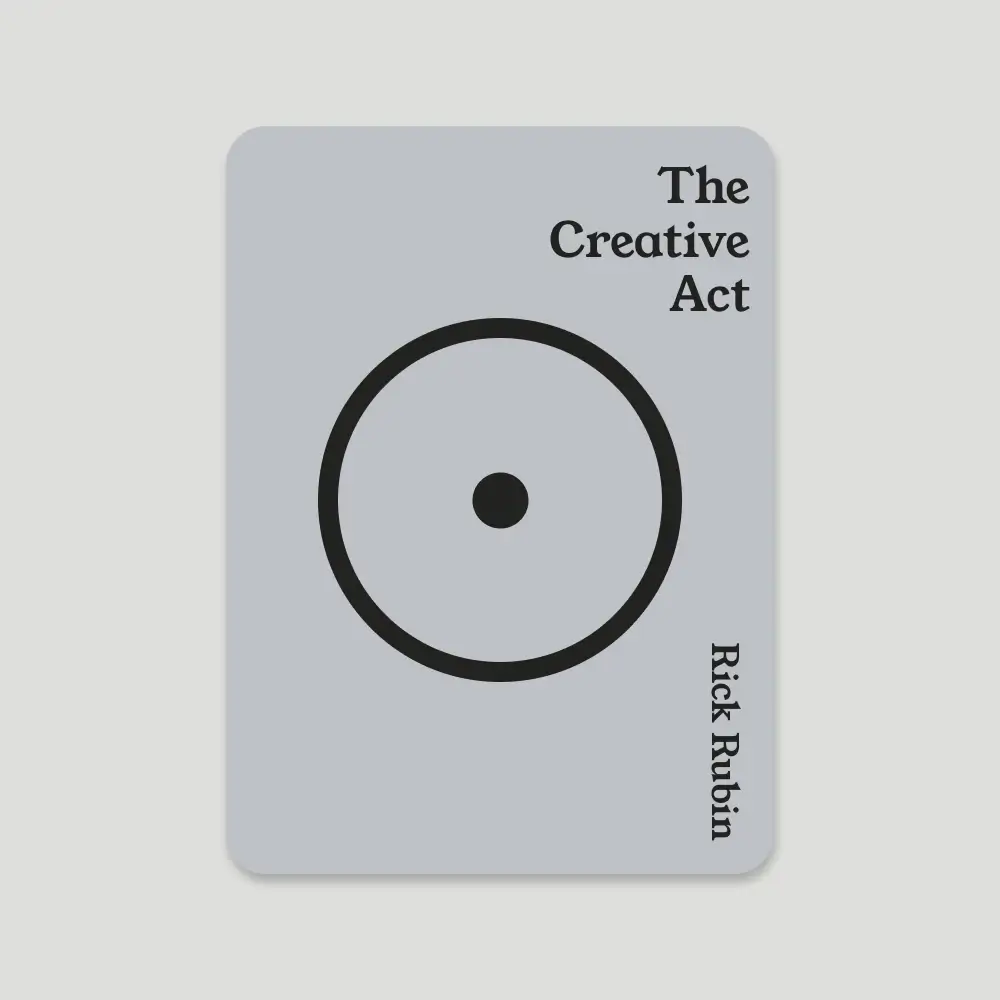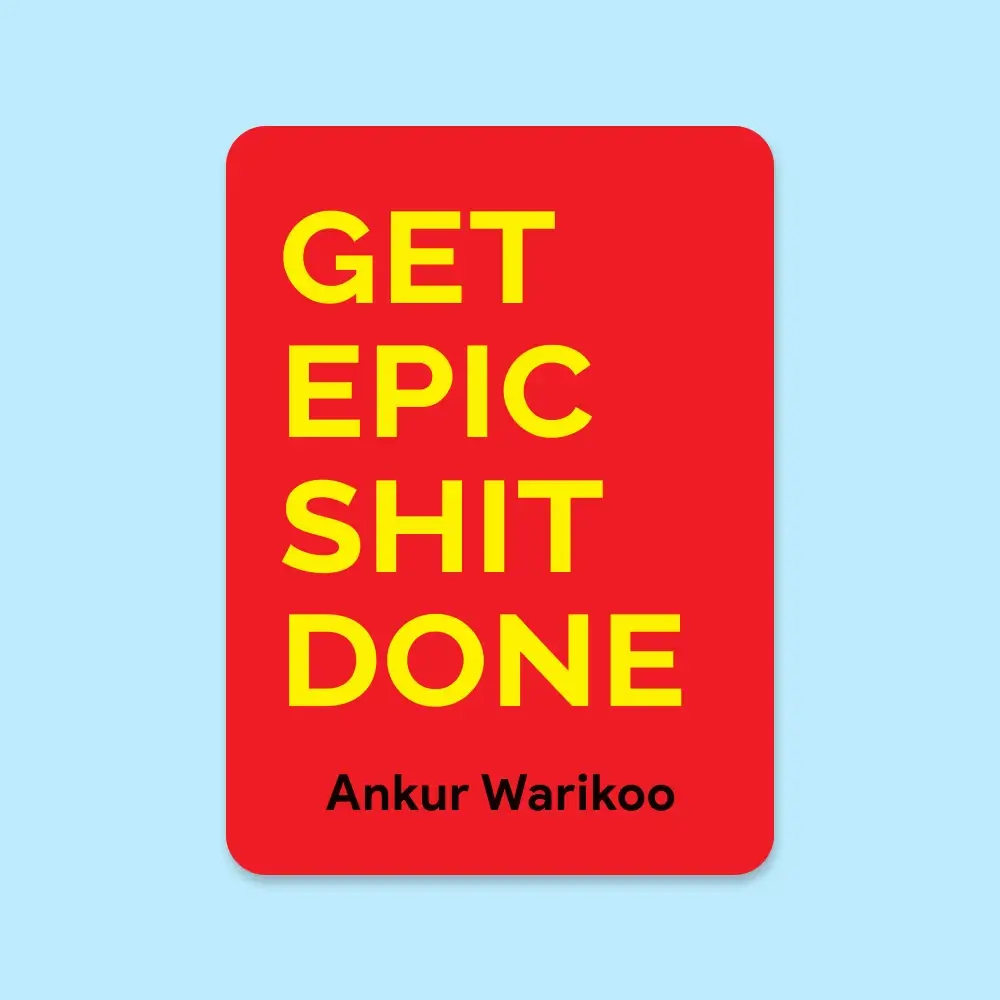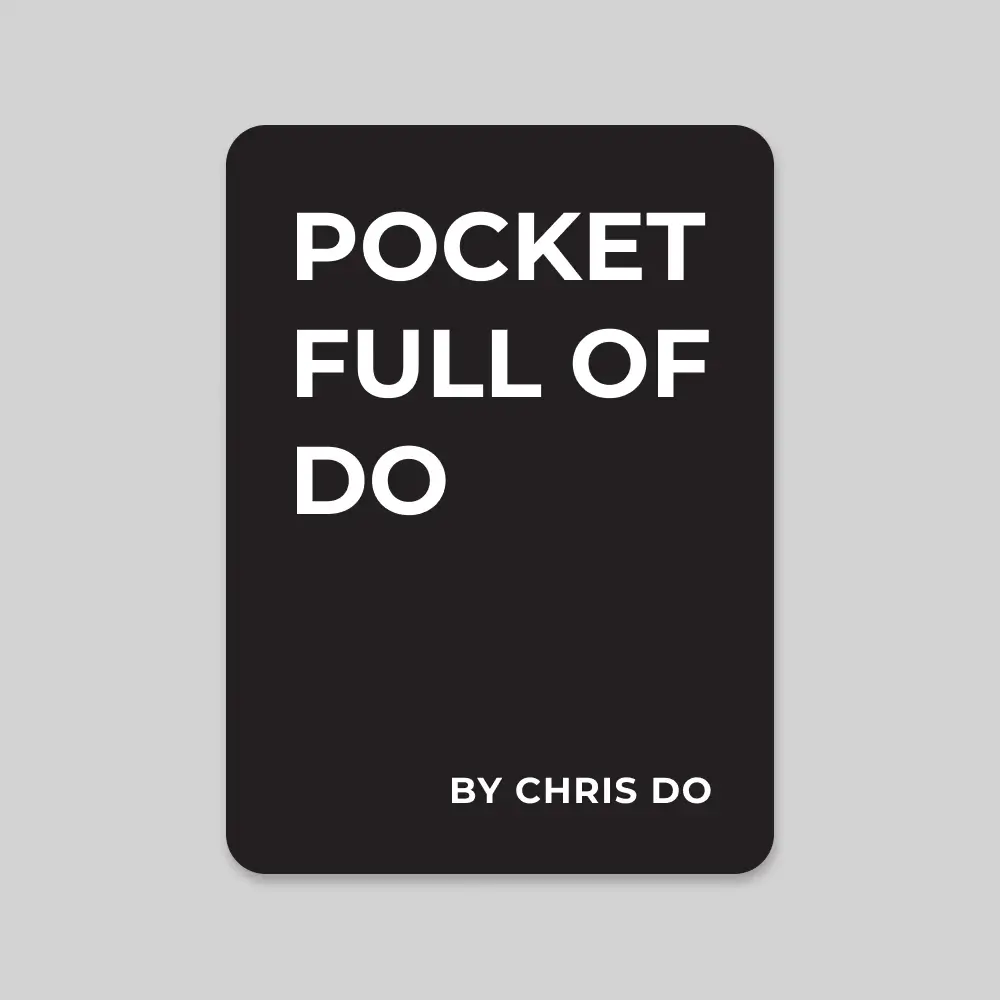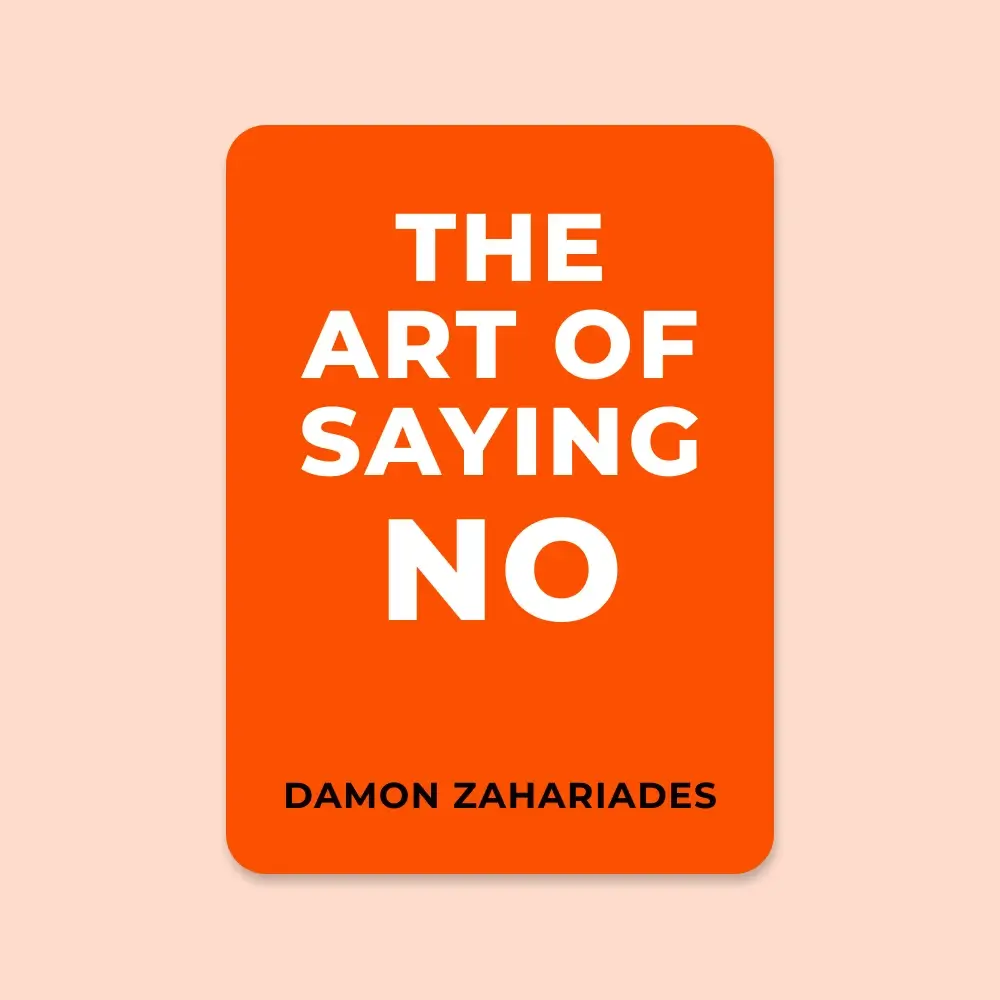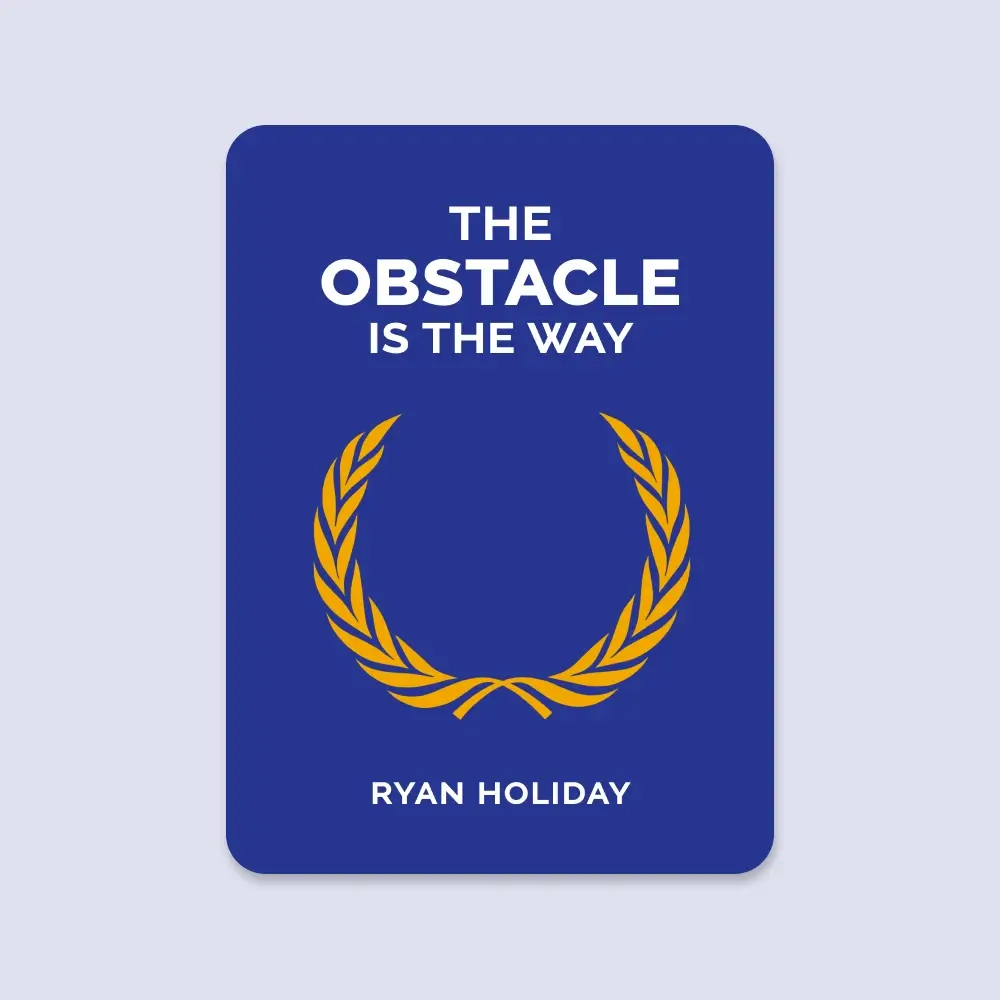
The Obstacle Is the Way
- Our actions may be impeded . . . but there can be no impeding our intentions or dispositions. Because we can accommodate and adapt. The mind adapts and converts to its own purposes the obstacle to our acting. The impediment to action advances action. What stands in the way becomes the way.
“The obstacle in the path becomes the path. Never forget, within every obstacle is an opportunity to improve our condition.”
- When you have a goal, obstacles are actually teaching you how to get where you want to go—carving you a path.
Objective judgment, now at this very moment. Unselfish action, now at this very moment. Willing acceptance—now at this very moment—of all external events. That’s all you need. —MARCUS AURELIUS
-
These obstacles are actually opportunities to test ourselves, to try new things, and, ultimately, to triumph. The Obstacle Is the Way.
-
What matters most is not what these obstacles are but how we see them, how we react to them, and whether we keep our composure. You will learn that this reaction determines how successful we will be in overcoming—or possibly thriving because of—them.
-
Outward appearances are deceptive. What’s within them, beneath them, is what matters.
Choose not to be harmed—and you won’t feel harmed. Don’t feel harmed—and you haven’t been. —MARCUS AURELIUS
- To one person a situation may be negative. To another, that same situation may be positive.
“Nothing either good or bad, but thinking makes it so,” —Shakespeare
-
There is no good or bad without us, there is only perception.
-
A mistake becomes training.
What such a man needs is not courage but nerve control, cool headedness. This he can get only by practice. —THEODORE ROOSEVELT
- If your nerve holds, then nothing really did “happen”—our perception made sure it was nothing of consequence.
Would you have a great empire? Rule over yourself. —PUBLIUS SYRUS
-
Subconsciously, we should be constantly asking ourselves this question: Do I need to freak out about this?
-
No, because I practiced for this situation and I can control myself. Or, No, because I caught myself and I’m able to realize that that doesn’t add anything constructive.
Don’t let the force of an impression when it first hit you knock you off your feet; just say to it: Hold on a moment; let me see who you are and what you represent. Let me put you to the test. —EPICTETUS
-
It’s so much better to see things as they truly, actually are, not as we’ve made them in our minds.
-
Take your situation and pretend it is not happening to you. Pretend it is not important, that it doesn’t matter. How much easier would it be for you to know what to do? How much more quickly and dispassionately could you size up the scenario and its options? You could write it off, greet it calmly.
Man does not simply exist but always decides what his existence will be, what he will become the next moment. By the same token, every human being has the freedom to change at any instant. —VIKTOR FRANKL
-
That is, when you can break apart something, or look at it from some new angle, it loses its power over you.
-
Fear is debilitating, distracting, tiring, and often irrational.
-
We can’t change the obstacles themselves—that part of the equation is set—but the power of perspective can change how the obstacles appear.
-
How we approach, view, and contextualize an obstacle, and what we tell ourselves it means, determines how daunting and trying it will be to overcome.
-
Where the head goes, the body follows. Perception precedes action. Right action follows the right perspective.
In life our first job is this, to divide and distinguish things into two categories: externals I cannot control, but the choices I make with regard to them I do control. Where will I find good and bad? In me, in my choices. —EPICTETUS
The trick to forgetting the big picture is to look at everything close up. —CHUCK PALAHNIUK
-
Focus on the moment, not the monsters that may or may not be up ahead.
-
The implications of our obstacle are theoretical—they exist in the past and the future. We live in the moment. And the more we embrace that, the easier the obstacle will be to face and move.
-
Remember that this moment is not your life, it’s just a moment in your life. Focus on what is in front of you, right now. Ignore what it “represents” or it “means” or “why it happened to you.”
Genius is the ability to put into effect what is in your mind. There’s no other definition of it. —F. SCOTT FITZGERALD
-
To aim low meant to accept mediocre accomplishment. But a high aim could, if things went right, create something extraordinary.
-
It is often in that desperate nothing-to-lose state that we are our most creative.
-
Our best ideas come from there, where obstacles illuminate new options.
A good person dyes events with his own color . . . and turns whatever happens to his own benefit. —SENECA
“There is good in everything, if only we look for it.” — Laura Ingalls Wilder
Then imitate the action of the tiger; stiffen the sinews, summon up the blood. —SHAKESPEARE
- Each obstacle we overcome makes us stronger for the next one.
We must all either wear out or rust out, every one of us. My choice is to wear out. —THEODORE ROOSEVELT
He says the best way out is always through And I agree to that, or in so far As I can see no way out but through. —ROBERT FROST
-
We will not be stopped by failure, we will not be rushed or distracted by external noise. We will chisel and peg away at the obstacle until it is gone. Resistance is futile.
-
Stop looking for an epiphany, and start looking for weak points. Stop looking for angels, and start looking for angles. There are options. Settle in for the long haul and then try each and every possibility, and you’ll get there.
What is defeat? Nothing but education; nothing but the first steps to something better. —WENDELL PHILLIPS
-
When failure does come, ask: What went wrong here? What can be improved? What am I missing? This helps birth alternative ways of doing what needs to be done, ways that are often much better than what we started with. Failure puts you in corners you have to think your way out of. It is a source of breakthroughs.
-
It’s time you understand that the world is telling you something with each and every failure and action. It’s feedback—giving you precise instructions on how to improve, it’s trying to wake you up from your cluelessness. It’s trying to teach you something. Listen.
Under the comb the tangle and the straight path are the same. —HERACLITUS
- Take your time, don’t rush. Some problems are harder than others. Deal with the ones right in front of you first. Come back to the others later. You’ll get there. The process is about doing the right things, right now. Not worrying about what might happen later, or the results, or the whole picture.
Whatever is rightly done, however humble, is noble. (Quidvis recte factum quamvis humile praeclarum.) —SIR HENRY ROYCE
-
We tell ourselves that we’ll get started once the conditions are right, or once we’re sure we can trust this or that. When, really, it’d be better to focus on making due with what we’ve got. On focusing on results instead of pretty methods.
-
There are a lot of ways to get from point A to point B. It doesn’t have to be a straight line. It’s just got to get you where you need to go. But so many of us spend so much time looking for the perfect solution that we pass up what’s right in front of us.
Do the best with what you’ve got.
Think progress, not perfection.
Whoever cannot seek the unforeseen sees nothing, for the known way is an impasse. —HERACLITUS
-
You don’t convince people by challenging their longest and most firmly held opinions. You find common ground and work from there. Or you look for leverage to make them listen. Or you create an alterative with so much support from other people that the opposition voluntarily abandons its views and joins your camp.
-
Sometimes the longest way around is the shortest way home.
Wise men are able to make a fitting use even of their enmities. —PLUTARCH
-
Sometimes in your life you need to have patience—wait for temporary obstacles to fizzle out. Let two jousting egos sort themselves out instead of jumping immediately into the fray. Sometimes a problem needs less of you—fewer people period—and not more.
-
We wrongly assume that moving forward is the only way to progress, the only way we can win. Sometimes, staying put, going sideways, or moving backward is actually the best way to eliminate what blocks or impedes your path.
When jarred, unavoidably, by circumstance revert at once to yourself and don’t lose the rhythm more than you can help. You’ll have a better grasp of harmony if you keep going back to it. —MARCUS AURELIUS
- Adversity can harden you. Or it can loosen you up and make you better—if you let it.
The best men are not those who have waited for chances but who have taken them; besieged chance, conquered the chance, and made chance the servitor. —E. H. CHAPIN
- Ordinary people shy away from negative situations, just as they do with failure. They do their best to avoid trouble. What great people do is the opposite. They are their best in these situations. They turn personal tragedy or misfortune—really anything, everything—to their advantage.
In the meantime, cling tooth and nail to the following rule: not to give in to adversity, not to trust prosperity, and always take full note of fortune’s habit of behaving just as she pleases. —SENECA
-
Will is our internal power, which can never be affected by the outside world.
-
Certain things in life will cut you open like a knife. When that happens—at that exposing moment—the world gets a glimpse of what’s truly inside you.
-
It’s much easier to control our perceptions and emotions than it is to give up our desire to control other people and events. It’s easier to persist in our efforts and actions than to endure the uncomfortable or the painful. It’s easier to think and act than it is to practice wisdom.
-
Always prepare ourselves for more difficult times. Always accept what we’re unable to change. Always manage our expectations. Always persevere. Always learn to love our fate and what happens to us. Always protect our inner self, retreat into ourselves. Always submit to a greater, larger cause. Always remind ourselves of our own mortality.
If thy faint in the day of adversity, thy strength is small. —PROVERBS 24:10
-
We take weakness for granted. We assume that the way we’re born is the way we simply are, that our disadvantages are permanent. And then we atrophy from there.
-
Nobody is born with a steel backbone. We have to forge that ourselves.
-
The path of least resistance is a terrible teacher. We can’t afford to shy away from the things that intimidate us. We don’t need to take our weaknesses for granted.
Offer a guarantee and disaster threatens. —ANCIENT INSCRIPTION AT THE ORACLE OF DELPHI
-
And in the case where nothing could be done, the Stoics would use it as an important practice to do something the rest of us too often fail to do: manage expectations. Because sometimes the only answer to “What if . . .” is, It will suck but we’ll be okay.
-
Beware the calm before the storm. Hope for the best, prepare for the worst. The worst is yet to come. It gets worse before it gets better.
-
Anticipation doesn’t magically make things easier, of course. But we are prepared for them to be as hard as they need to be, as hard as they actually are.
The Fates guide the person who accepts them and hinder the person who resists them. —CLEANTHES
-
Constraints in life are a good thing. Especially if we can accept them and let them direct us. They push us to places and to develop skills that we’d otherwise never have pursued.
-
All external events can be equally beneficial to us because we can turn them all upside down and make use of them. They can teach us a lesson we were reluctant to otherwise learn.
-
We instinctively think about how much better we’d like any given situation to be. We start thinking about what we’d rather have. Rarely do we consider how much worse things could have been.
-
We squirm and complain about what was taken from us. We still can’t appreciate what we have.
My formula for greatness in a human being is amor fati: that one wants nothing to be different, not forward, not backward, not in all eternity. Not merely bear what is necessary, still less conceal it . . . but love it. —NIETZSCHE
-
To do great things, we need to be able to endure tragedy and setbacks. We’ve got to love what we do and all that it entails, good and bad. We have to learn to find joy in every single thing that happens.
-
Your obstacle may not be so serious or violent. But they are nevertheless significant and outside your control. They warrant only one response: a smile.
-
Learning not to kick and scream about matters we can’t control is one thing. Indifference and acceptance are certainly better than disappointment or rage. Very few understand or practice that art. But it is only a first step. Better than all of that is love for all that happens to us, for every situation.
The goal is:
Not: I’m okay with this.
Not: I think I feel good about this.
But: I feel great about it. Because if it happened, then it was meant to happen, and I am glad that it did when it did. I am meant to make the best of it.
-
Don’t waste a second looking back at your expectations. Face forward, and face it with a smug little grin.
-
It’s a little unnatural, I know, to feel gratitude for things we never wanted to happen in the first place. But we know, at this point, the opportunities and benefits that lie within adversities. We know that in overcoming them, we emerge stronger, sharper, empowered. There is little reason to delay these feelings. To begrudgingly acknowledge later that it was for the best, when we could have felt that in advance because it was inevitable.
-
That is not to say that the good will always outweigh the bad. Or that it comes free and without cost. But there is always some good—even if only barely perceptible at first—contained within the bad.
“Gentleman, I am hardening on this enterprise. I repeat, I am now hardening towards this enterprise.”—WINSTON CHURCHILL
-
Life is not about one obstacle, but many. What’s required of us is not some shortsighted focus on a single facet of a problem, but simply a determination that we will get to where we need to go, somehow, someway, and nothing will stop us.
-
We will overcome every obstacle—and there will be many in life—until we get there. Persistence is an action. Perseverance is a matter of will. One is energy. The other, endurance.
-
The good thing about true perseverance is that it can’t be stopped by anything besides death.
-
We don’t control the barriers or the people who put them there. But we control ourselves—and that is sufficient.
A man’s job is to make the world a better place to live in, so far as he is able—always remembering the results will be infinitesimal—and to attend to his own soul. —LEROY PERCY
-
Stop making it harder on yourself by thinking about I, I, I. Stop putting that dangerous “I” in front of events. I did this. I was so smart. I had that. I deserve better than this. No wonder you take losses personally, no wonder you feel so alone. You’ve inflated your own role and importance.
-
Help your fellow humans thrive and survive, contribute your little bit to the universe before it swallows you up, and be happy with that. Lend a hand to others. Be strong for them, and it will make you stronger.
When a man knows he is to be hanged in a fortnight, it concentrates his mind wonderfully. —DR. JOHNSON
-
Death doesn’t make life pointless, but rather purposeful. And, fortunately, we don’t have to nearly die to tap into this energy.
-
Our fear of death is a looming obstacle in our lives. It shapes our decisions, our outlook, and our actions.
-
We forget how light our grip on life really is.
-
If something is in our control, it’s worth every ounce of our efforts and energy. Death is not one of those things—it is not in our control how long we will live or what will come and take us from life.
-
There’s no question about it: Death is the most universal of our obstacles. It’s the one we can do the least about. At the very best, we can hope to delay it—and even then, we’ll still succumb eventually.
Live on in your blessings, your destiny’s been won. But ours calls us on from one ordeal to the next. —VIRGIL
-
The great law of nature is that it never stops. There is no end. Just when you think you’ve successfully navigated one obstacle, another emerges. But that’s what keeps life interesting. And as you’re starting to see, that’s what creates opportunities.
-
Each time, you’ll learn something. Each time, you’ll develop strength, wisdom, and perspective. Each time, a little more of the competition falls away. Until all that is left is you: the best version of you.
-
Knowing that life is a marathon and not a sprint is important. Conserve your energy. Understand that each battle is only one of many and that you can use it to make the next one easier. More important, you must keep them all in real perspective.
To be a philosopher is not merely to have subtle thoughts, nor even to found a school . . . it is to solve some of the problems of life, not only theoretically, but practically. —HENRY DAVID THOREAU
